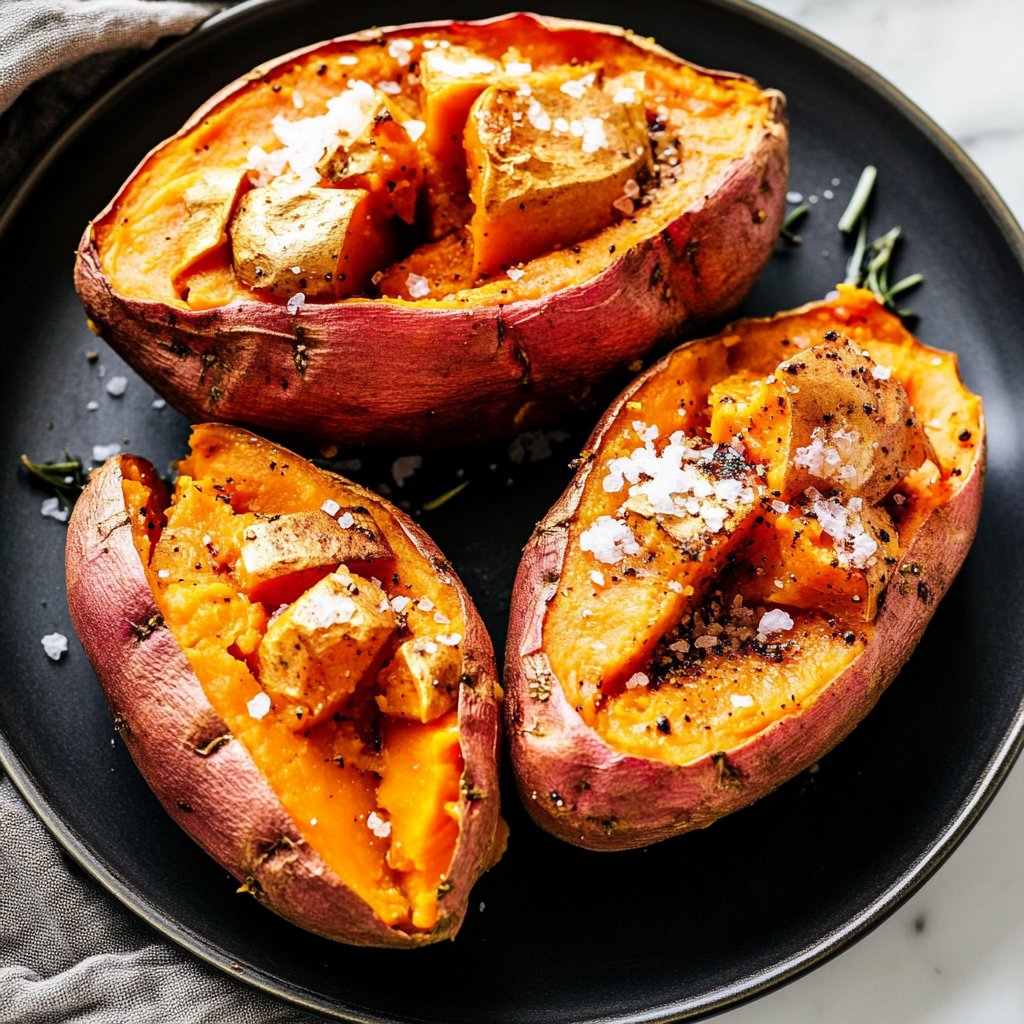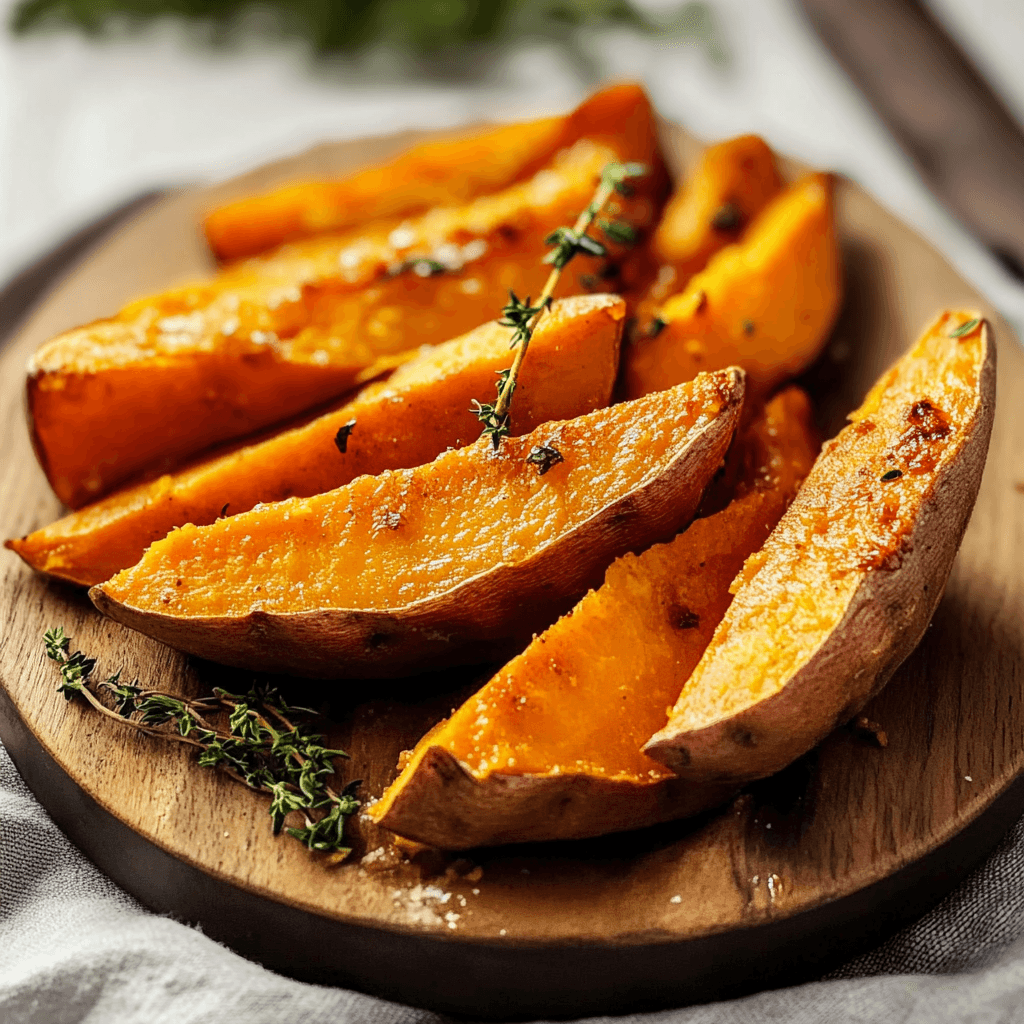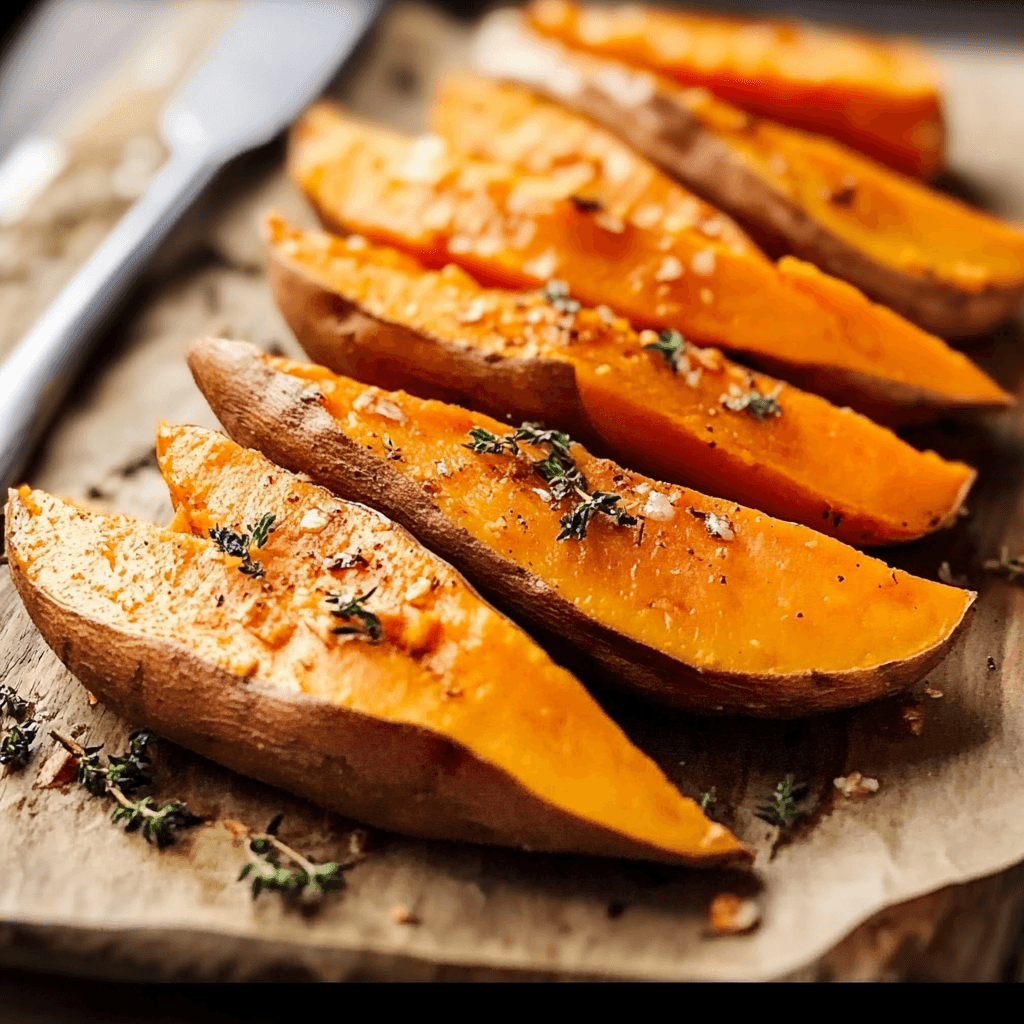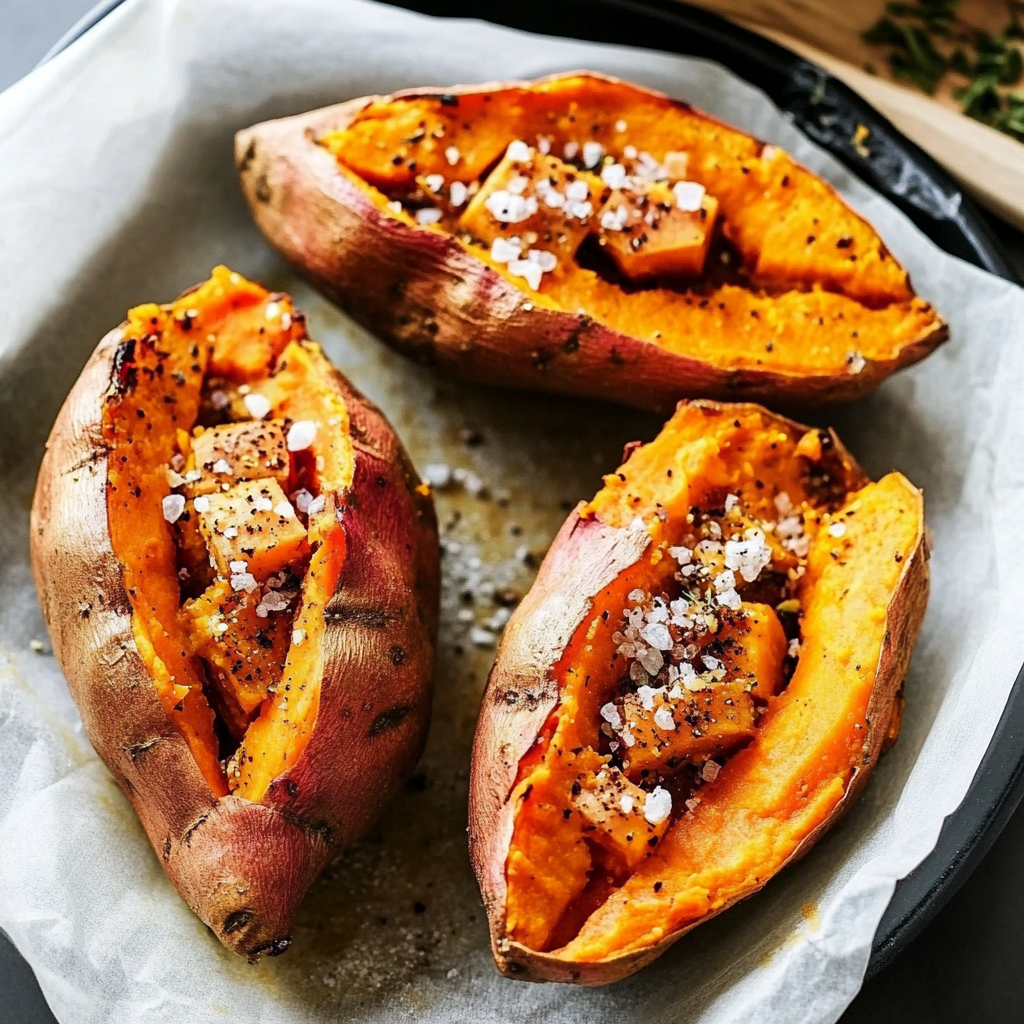Baked Sweet Potato Nutrition are a delicious, versatile root vegetable cherished globally for their natural sweetness, vibrant color, and remarkable nutritional benefits. A staple in health-conscious diets, they fit seamlessly into vegan, gluten-free, and paleo lifestyles. Originating in Central and South America over 5,000 years ago, sweet potatoes have become a dietary cornerstone in cultures worldwide, notably in Asia and Africa, where they help combat vitamin A deficiency. Baking sweet potatoes enhances their flavor while preserving nutrients, making them a superior choice over frying or boiling. Surprisingly, a single medium baked sweet potato provides over 400% of the daily vitamin A requirement. This article delves into their nutritional profile, health benefits, and creative ways to enjoy this superfood.

Nutritional Profile of Baked Sweet Potatoes
Baked sweet potatoes are not only delicious but also a powerhouse of essential nutrients. They are low in calories and provide an excellent source of vitamins, minerals, and fiber. Here’s a breakdown of the nutritional content in a medium-sized baked sweet potato:
- Calories: Approximately 100–120 calories
- Carbohydrates: 24 grams of carbohydrates, including 4 grams of fiber.
- Proteins: 2 grams of protein.
- Fats: Virtually no fat.
- Vitamins and Minerals:
- Vitamin A (Beta-carotene) – Provides more than 400% of your daily requirement of Vitamin A.
- Vitamin C – Supports immune health.
- Potassium – Important for heart and muscle function.
- Manganese – Plays a role in metabolism.
For more detailed nutrition facts and breakdowns, check out Verywell Fit’s Guide to Baked Sweet Potatoes.
Comparison with Regular Baked Sweet Potato Nutrition
When compared to regular potatoes, sweet potatoes offer a richer nutrient profile, particularly in terms of vitamin A and antioxidants like beta-carotene. They also tend to have a lower glycemic index, meaning they cause a slower rise in blood sugar levels, making them a better choice for those managing diabetes or aiming to maintain stable energy levels throughout the day.
If you’re curious about the nutritional comparison, take a look at this article from Healthline for more insights into sweet potato nutrition and its health benefits.
Health Benefits of Baked Sweet Potato Nutrition
Baked sweet potatoes are not just delicious, they offer a wide range of health benefits thanks to their rich nutrient content. Here are some of the key health benefits:
1. Rich in Vitamin A
- A medium-sized baked sweet potato provides over 400% of your daily vitamin A needs, which is essential for vision, skin health, and immune function.
2. Packed with Antioxidants
- Sweet potatoes are loaded with antioxidants such as beta-carotene, which help protect the body from free radicals, reducing inflammation and lowering the risk of chronic diseases.
3. Promotes Gut Health
- With 4 grams of fiber, baked sweet potatoes support digestive health by encouraging regular bowel movements and feeding beneficial gut bacteria.
4. Supports Heart Health
- The high potassium content in baked sweet potatoes helps lower blood pressure, reducing the risk of cardiovascular diseases.
5. Helps with Weight Management
- Because they are high in fiber and complex carbohydrates, baked sweet potatoes help you feel fuller for longer, reducing overall calorie intake and supporting healthy weight management.
6. Supports Blood Sugar Control
- With their low glycemic index, baked sweet potatoes release sugar slowly into the bloodstream, helping stabilize blood sugar levels—especially important for people with diabetes.

Best Practices for Baked Sweet Potato Nutrition
Baking sweet potatoes is simple and requires little preparation. Follow these easy steps for perfectly baked sweet potatoes:
- Selection: Choose firm, unblemished sweet potatoes. Look for ones that are free of cracks or soft spots.
- Preparation: Wash the sweet potatoes thoroughly and pierce the skin several times with a fork to allow steam to escape while baking.
- Baking: Place the sweet potatoes on a baking sheet and bake at 400°F (200°C) for 45-60 minutes, or until they are tender and easily pierced with a fork.
To add flavor, consider brushing the skin with a little olive oil or adding a pinch of salt.
Culinary Applications of Baked Sweet Potato Nutrition
Baked sweet potatoes are incredibly versatile, offering a balance of natural sweetness, fiber, and essential nutrients that make them a healthy addition to any meal. Their soft texture and rich flavor make them adaptable for a wide range of culinary applications, from breakfast to dessert.
Here are some delicious and creative ways to incorporate baked sweet potatoes into your daily meals:
Breakfast: A Nutrient-Packed Start to the Day
1️⃣ Sweet Potato Toast – Slice baked sweet potatoes into thick pieces and toast them in a pan or oven. Top with:
- Avocado & Poached Egg – A fiber-rich alternative to bread.
- Peanut Butter & Banana – A protein-packed, energy-boosting combo.
- Greek Yogurt & Berries – A naturally sweet and creamy breakfast.
2️⃣ Sweet Potato Pancakes – Mash baked sweet potatoes and mix with eggs, cinnamon, and oat flour for a gluten-free pancake option.
3️⃣ Breakfast Hash – Dice baked sweet potatoes and sauté with onions, bell peppers, and turkey sausage for a hearty, high-fiber breakfast.
Lunch/Dinner: A Perfect Side or Main Dish
1️⃣ Stuffed Sweet Potatoes – Slice a baked sweet potato open and fill with:
- Grilled Chicken & Avocado – A protein-rich, satisfying meal.
- Black Beans & Salsa – A fiber-filled, plant-based option.
- Ground Turkey & Spinach – A great low-carb meal choice.
2️⃣ Sweet Potato Salad – Cube baked sweet potatoes and mix with:
- Kale, quinoa, and almonds for a superfood salad.
- Chickpeas, feta cheese, and lemon dressing for a Mediterranean twist.
3️⃣ Sweet Potato Soup – Blend baked sweet potatoes with vegetable broth, coconut milk, and curry spices for a creamy, comforting soup.
4️⃣ Sweet Potato Fries – Slice baked sweet potatoes into wedges, season with paprika, garlic powder, and sea salt, then bake until crispy.
Snacks: Healthy & Satisfying Options
1️⃣ Sweet Potato Chips – Thinly slice baked sweet potatoes, brush with olive oil, and bake until crispy. Sprinkle with sea salt or cinnamon.
2️⃣ Sweet Potato Hummus – Blend baked sweet potatoes with chickpeas, tahini, lemon juice, and garlic for a smooth and flavorful dip.
3️⃣ Mashed Sweet Potato Dip – Mix baked sweet potato mash with Greek yogurt and cinnamon for a creamy, nutrient-dense dip for crackers or fruit.
Desserts: Naturally Sweet & Delicious
1️⃣ Sweet Potato Pie – Puree baked sweet potatoes with cinnamon, nutmeg, eggs, and maple syrup for a classic holiday dessert.
2️⃣ Sweet Potato Muffins – Use baked sweet potatoes as a base for moist, fiber-rich muffins.
3️⃣ Sweet Potato Brownies – Mash sweet potatoes and mix with cocoa powder, almond flour, and honey for a healthy chocolate treat.
4️⃣ Sweet Potato Ice Cream – Blend baked sweet potatoes with coconut milk, vanilla, and maple syrup, then freeze for a dairy-free dessert.
Why Include Baked Sweet Potatoes in Your Diet?
✔ High in Fiber – Supports digestion and gut health.
✔ Rich in Antioxidants – Contains beta-carotene, which boosts immunity.
✔ Naturally Sweet – Reduces the need for added sugars in recipes.
✔ Versatile – Can be used in savory and sweet dishes.
Looking for another delicious and nutritious dish? Try this Baked Mac and Cheese for a comforting meal!
FAQs About Baked Sweet Potato Nutrition
1. Are baked sweet potatoes healthier than boiled sweet potatoes?
While both boiled and baked sweet potatoes retain most of their nutrients, baking enhances the natural sweetness and flavor of the potato. Boiling can cause a slight loss of water-soluble vitamins like vitamin C, but overall, both methods are healthy.
2. How many calories are in a medium baked sweet potato?
A medium-sized baked sweet potato contains around 100–120 calories, making it a low-calorie and nutrient-dense food option.
3. Can baked sweet potatoes aid in weight loss?
Yes, baked sweet potatoes are rich in fiber and complex carbohydrates, which promote satiety and help manage hunger, supporting healthy weight loss and maintenance.
4. Is it safe to eat the skin of baked sweet potatoes?
Absolutely! The skin of a sweet potato contains additional fiber and nutrients. It’s perfectly safe to eat, though some people prefer to peel it for texture reasons.
5. How long does it take to bake sweet potatoes?
Typically, it takes 45-60 minutes to bake sweet potatoes at 400°F (200°C), depending on the size of the potato.

Conclusion
Baked sweet potatoes are a versatile, nutrient-packed food that can easily be incorporated into a wide variety of meals. Rich in vitamins, minerals, and fiber, they support numerous health benefits, from enhancing vision and boosting immunity to promoting digestive health and managing blood sugar levels. Whether you’re looking for a nutritious side dish, a weight-loss-friendly food, or a comforting addition to your diet, baked sweet potatoes have you covered.
Moreover, understanding the different cooking methods and their impact on nutrition, as well as the various ways to enjoy sweet potatoes—skin and all—can help you make the most out of this powerhouse vegetable. By integrating sweet potatoes into your meal planning, you’re not only adding flavor and texture, but you’re also giving your body the nourishment it needs to thrive.
For those looking to explore more about sweet potatoes, including their calorie content, nutrient breakdown, and optimal cooking techniques, be sure to check out the related articles linked throughout this guide. By diving deeper into these topics, you’ll discover even more ways to harness the full potential of baked sweet potatoes in your everyday meals.
So, whether you’re baking, boiling, or enjoying them in different forms, baked sweet potatoes remain a highly nutritious and satisfying option that can be enjoyed all year round. Embrace their health benefits, and don’t hesitate to experiment with new ways to prepare them for your next meal.
